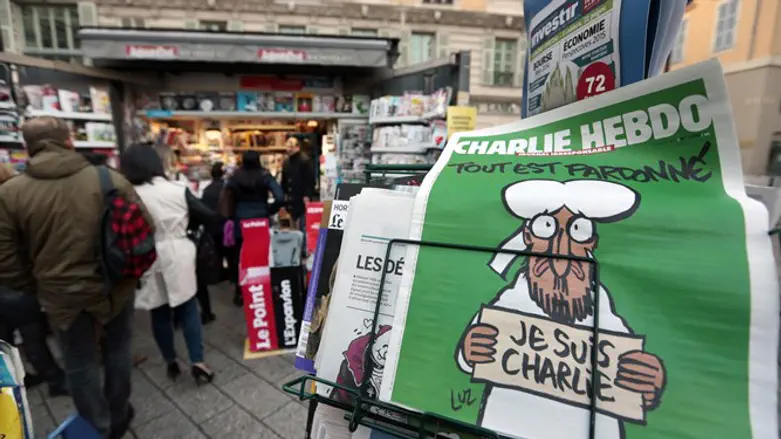
The current director of France's Charlie Hebdo satirical weekly, the target of a massacre by Islamist gunmen in January 2015, on Wednesday said the magazine had "nothing to regret" for publishing cartoons of the prophet Mohammed that angered Muslims around the world.
Fourteen suspected accomplices are standing trial in Paris over the January 7-9, 2015 massacres at Charlie Hebdo and a Jewish supermarket that left a total of 17 dead.
Seen as a champion of press freedom by supporters, critics accused Charlie Hebdo of crossing a line when it published the Mohammed caricatures in 2006, provoking the ire of Muslims worldwide.
"I don't want to be dependent on the insane arbitrariness of fanatics," Charlie Hebdo's director Laurent Sourisseau, known as "Riss" and who was himself badly wounded in the shoulder in the attack, told the court.
"There is nothing to regret" in having published the cartoons, he added.
"What I regret is to see how little people fight to defend freedom. If we don't fight for our freedom, we live like a slave and we promote a deadly ideology."
Ten people were killed inside the offices of Charlie Hebdo including Jean Cabut, known as Cabu, 76, Georges Wolinski, 80, and Stephane "Charb" Charbonnier, 47, who were among France's most celebrated cartoonists.
'Like house arrest'
Sourisseau, 53, who succeeded Charb as head of the publication, insisted that freedom is "not something that drops from the sky".
"We grew up without imagining that one day our freedoms would be put into question."
Recalling the horror of the attack by the brothers Cherif and Said Kouachi, he said: "The immediate sensation after the attack is that you have been cut in half and you were being deprived of a part of yourself."
Sourisseau now lives under round the clock protection. "It is like I am under house arrest."
Defiant as ever, Charlie Hebdo last week republished the cartoons of the prophet Mohammed, drawing new condemnation from states including Iran, Pakistan and Turkey.
"If we had given up the right to publish these cartoons, that would mean that we were wrong to do so" in the first place, he said.
The trial, which began on September 2, is expected to continue until November.